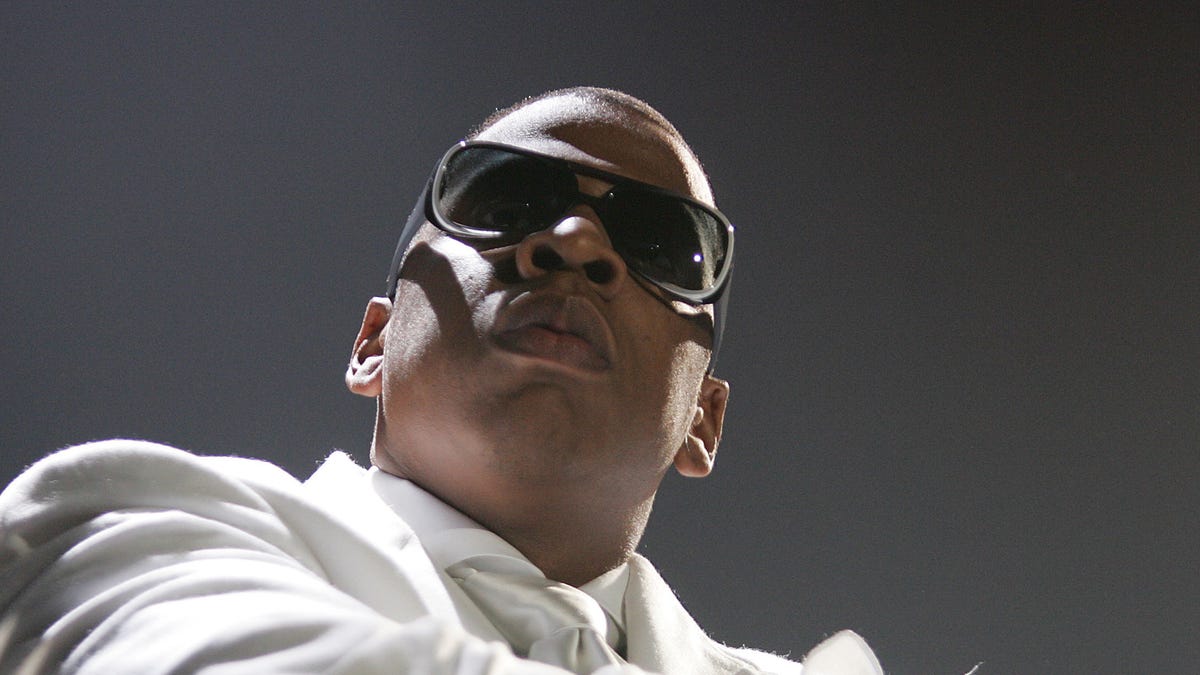Apple and Tidal: Because only an idiot refuses a meeting with Jay Z
Tidal offers Apple more star power, but selling out could jeopardize the one thing that makes it valuable.

Apple angling to buy a rapper-owned music service? That has a familiar tune.
The gadget giant is said to be the latest company eyeing Tidal, the subscription streaming music service owned by hip-hop star Jay Z. On Thursday, the Wall Street Journal reported Apple was holding exploratory talks about a takeover to bolster its own Apple Music streaming service, discussions that Tidal denied and that others speculated are already over. Apple declined to comment.
It isn't likely to be a remix of Apple's deal to buy Beats, 2014's eye-popping $3 billion acquisition of the headphone and music-service company owned by rapper Dr. Dre and music mogul Jimmy Iovine. Then, Apple needed to clear a path to launch its own subscription service for the first time.
Now, Apple is racing to overtake market leader Spotify. Tidal's technology, its name and even its subscribers wouldn't provide much fuel toward achieving that goal. But Tidal's star power could: The service reeled in droves of new subscribers after major exclusives from megastars Kanye West and Beyonce. Tidal's special relationship with hitmakers is its greatest asset, but it hinges on the service being owned by artists -- not Apple.
Jay Z bought Tidal in January 2015 for $56 million.
For half the time he has owned Tidal, Jay-Z has been trying to sell it. The rapper bought it in January 2015 for $56 million and relaunched it that March with a celebrity-studded ceremony. Little more than six months later, he was first spotted meeting with Samsung, which has struggled to find its meaningful place for its Milk streaming-radio app. Deal talks collapsed twice.
Apple launched its own music service a year ago and set off to catch up with Swedish startup Spotify. Apple quickly ramped up to 15 million members in a year. But Spotify's subscribers double that at 30 million, and its growth rate has only accelerated after Apple emerged as a competitor.
Why a deal doesn't make sense
As Apple weighs whether a Tidal takeover would help or hinder its pursuit of Spotify, most of Tidal's assets do neither.
Tidal's technology lacks stand-out features. Even though Apple Music was criticized as a clunky product that wreaked havoc on some users' music libraries when it launched, Apple has refashioned the app on its own. Folding in Tidal's product could create more headaches than it solved.
Tidal's brand would likely disappear. Apple kept the Beats name for the headphones it now sells, but Apple's disposition is for all its products and services have a similar look, feel and name.
And if Tidal were a simple subscribers grab, Apple would still face significant gap behind Spotify. The one-time boost would pull Apple to nearly 20 million members, but Spotify would still enjoy a 10 million subscriber lead.
Why a deal could make sense
Tidal's launch brought together Usher, Rihanna, Nicki Minaj, Madonna, Dead Mouse, Kanye West, Jay Z, Jason Aldean, Jack White, Daft Punk, Beyonce and Win Butler and other artists as co-owners.
Tidal's main value to Apple would be its special status with music industry's biggest hitmakers.
When Jay Z relaunched Tidal, he signed on 16 megastars as co-owners, bringing together some of the biggest names in popular music across genres, including West and Beyonce. They touted Tidal as the first artist-owned music platform, even calling it "a moment that will forever change music history." Critics mocked the unveiling as pompous and tone-deaf, but Tidal has shown better than any other service that exclusives can entice new members.
Weeks after West released his latest album "The Life of Pablo" with Tidal as the only streaming option, it crossed 3 million subscribers, up from 1 million in September. After Beyonce released her album "Lemonade" on the service in April, the number climbed to its current 4.2 million.
The catch: Tidal illustrates that for exclusives to be most effective, they should be long-term (Tidal is supposedly holding onto "Lemonade" in perpetuity). The service should also offer access to highly prized, buzzed-about releases, and they should come from music's most popular elite.
It's a tall order, and Jay Z delivered. While only a fraction of the now 19 co-owners have bestowed their most-valuable content to the Tidal alone, the West and Beyonce releases were unprecedented for a subscription service.
Yet taking over Tidal could endanger that very relationship with its stars, who signed up to take part in an artist-owned enterprise.
In other words, Apple owning Tidal may undermine the one thing that made it worth buying in the first place.

